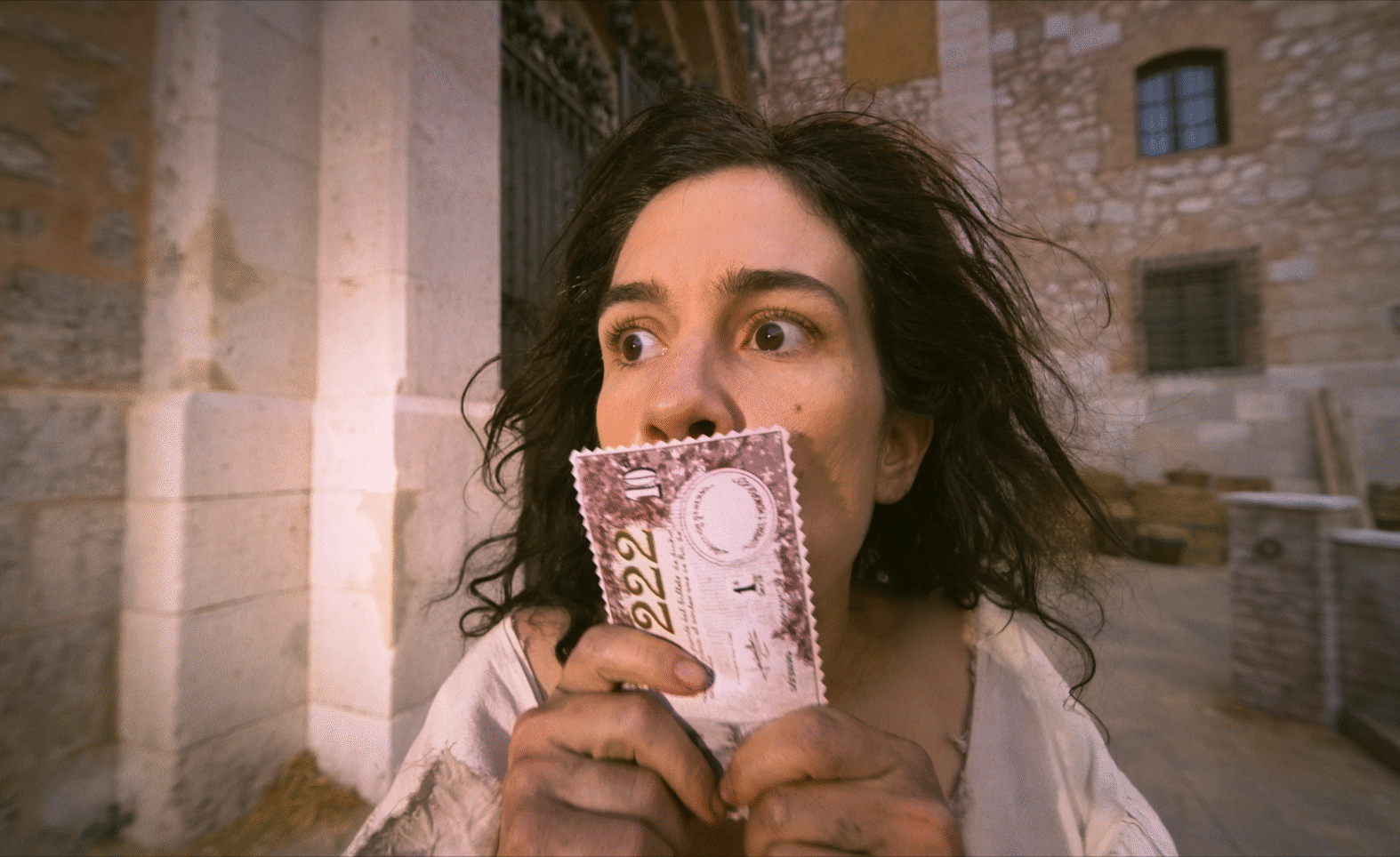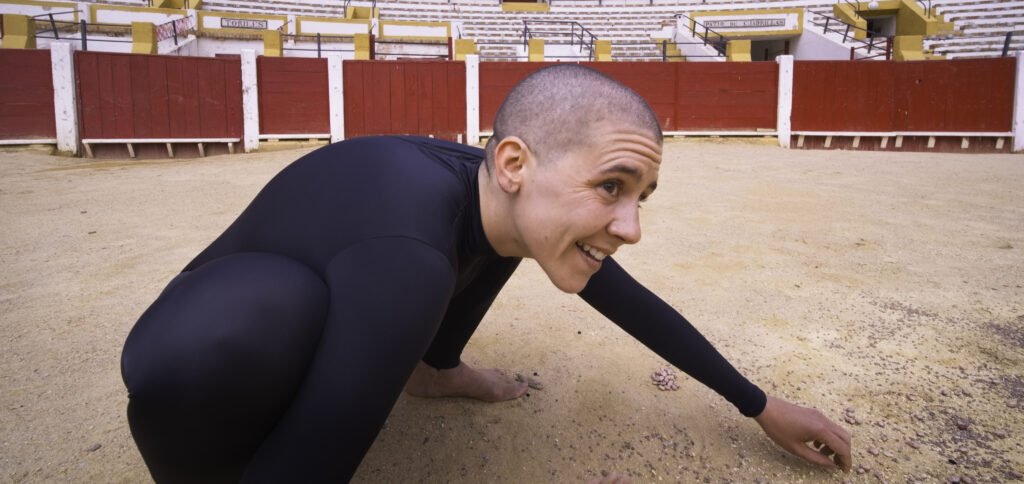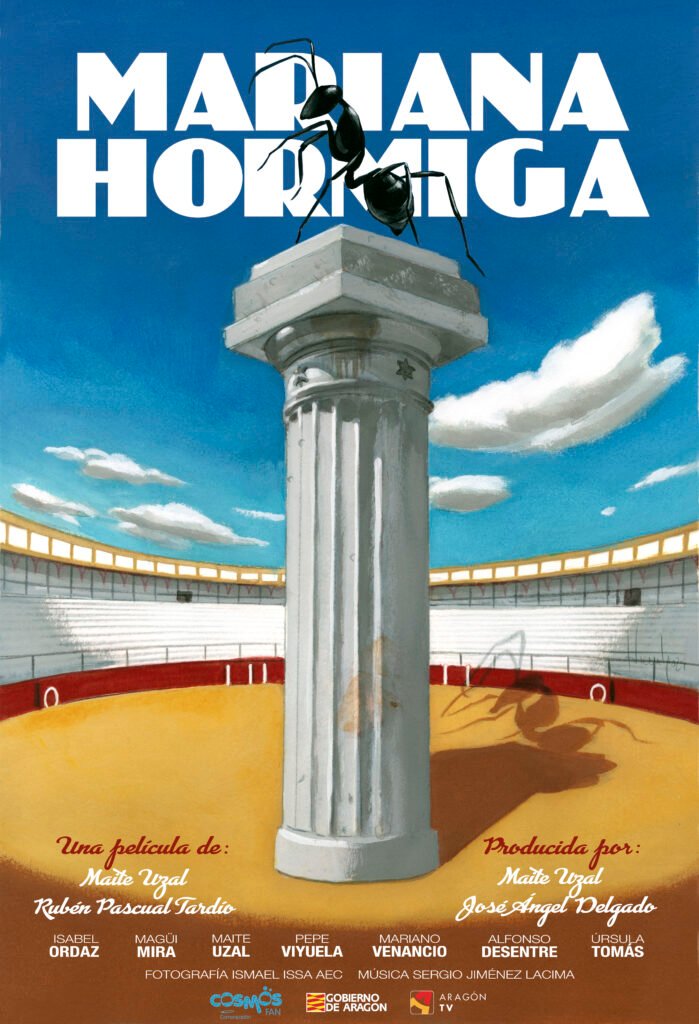Little Mother Lies – How Far is A Mother Willing to Go to Protect Her Child?
How far is a mother willing to go to protect her ...

Maite Uzal’s ‘Mariana Hormiga’ unfolds like a dream steeped in folklore and surrealism. It’s the kind of short film that invites laughter and reflection in equal measure with a satirical tone. You will notice this right from the opening scenes of this beautiful and creatively written short film.
This imaginative story tells a tale that explores the ironies of human desire through the lives of a mother and her daughter. The tale is set in a fictional land of ‘Thorbat’, a Spanish-inspired town where the mother and her daughter beg on the streets. The mother is bitter, idle, and hungry for wealth without effort. Her daughter, Mariana, is pure-hearted and endearing, with an almost childlike admiration for ants and their tireless work ethic. They encounter an elegant, mysterious lady who grants them both a wish, which sets into motion a transformation that looks like a change in their fortunes, but also delivers an upended tragedy.

The story serves as a poetic warning that what we long for most can often destroy us. What we wish for could really be the end of us, especially if we are wishing for the wrong things.
The short delivers this all with a very deliberate absurdity that highlights Maite Uzal’s creativity as a filmmaker. She not only directs this film, but she also plays the role of the older Mariana. The narrative blurs the line between humour and unnerving horror. It manages to keep the tone light and whimsical, but you cannot help but also notice the darkness to it that seems to provide the hue for its strong message.
The mother’s greed and the daughter’s innocence serve as two sides of the same human coin. They are both trapped by longing, yet at the same time, they are both undone by it. Maite Uzal clearly knew the message she was trying to convey with this narrative, and she does that with a mark of artistic defiance.

The film’s other cast, like Alfonso Desentre, who plays the narrator perched on a column in the town square, taking us through the story, as well as Úrsula Tomás, who plays the younger Mariana, are all a delight to watch. At no point do you see actors who are not committed to the performance. They all seem to have clearly understood the creative depths of the director’s vision for the story, and they delivered exceptionally well on that.
The film is aesthetically pleasing to watch in all aspects. The cinematography, art direction, and all add to the acting to advance this poignant narrative in unison. Every frame feels carefully composed yet unrestrained, like a very calculated approach at capturing the surreal beauty of Spanish folklore. And it does all this with a very concise 16-minute runtime. So much so that, when it ends, you wish there was still some more to see. But its message is enough to part away with after it ends. Imagination can be both a gift and a curse. There is some danger in unchecked desire and the cost of yearning for something beyond our nature.

Leave A Reply